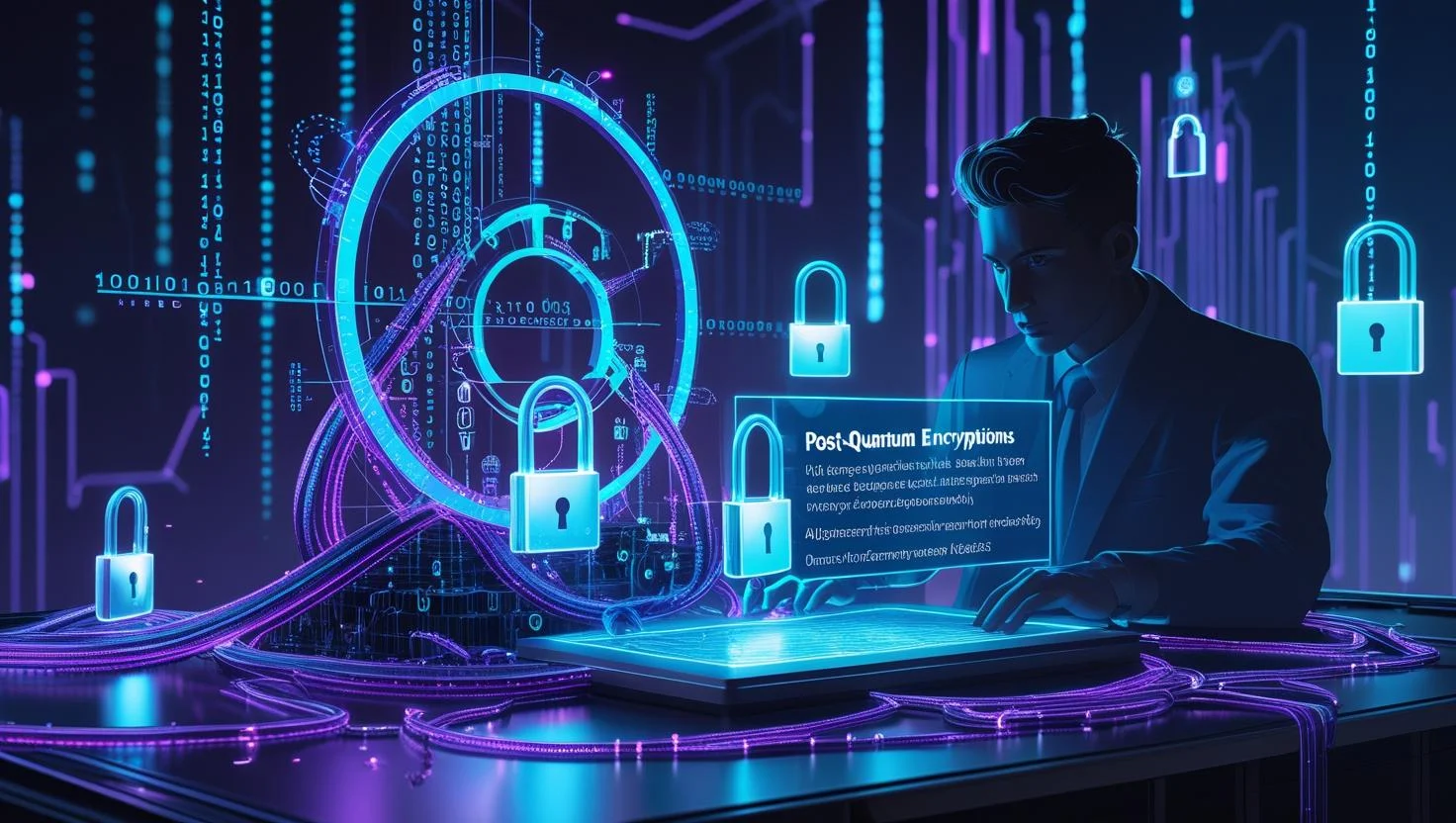Quantum Computing and the Future of Cybersecurity: Are We Ready?
🚀 Introduction
Quantum computing isn't science fiction anymore. In 2025, it's evolving rapidly and has become a serious concern for the cybersecurity world. This article explains what quantum computing is, how it affects cybersecurity, and why it could potentially break modern encryption. As an ethical hacker or security professional, understanding this trend is crucial to staying ahead.
💡 What is Quantum Computing?
Traditional computers use bits — 0s and 1s — to process information. But quantum computers use qubits, which can represent both 0 and 1 at the same time due to a concept called superposition. This gives them incredible computational power.
Quantum computers can also link qubits together using entanglement, which lets them solve complex problems much faster than classical systems.
🔓 Why is Quantum a Cybersecurity Threat?
Today's cybersecurity depends on hard-to-crack encryption. Algorithms like RSA, ECC, and AES take traditional computers years or centuries to break. However, a powerful enough quantum computer could crack them in minutes using Shor’s Algorithm or Grover's Algorithm.
⏰ The Countdown to Q-Day
“Q-Day” refers to the future moment when quantum computers become powerful enough to break current encryption. Hackers and nation-states may already be collecting encrypted data today to decrypt it once quantum technology is available — a tactic known as “harvest now, decrypt later.”
🧪 Real-Life Examples
- Google’s Sycamore Quantum Computer: In 2019, Google claimed quantum supremacy by solving a complex problem in 200 seconds.
- IBM Q: IBM is investing heavily in cloud-based quantum development platforms available to researchers and hackers.
- China’s Quantum Research: China has launched the world’s first quantum satellite to secure communications against hacking.
🔐 Enter Post-Quantum Cryptography (PQC)
To prepare for Q-Day, cryptographers have started developing post-quantum encryption algorithms. These are designed to resist quantum attacks while still being secure on classical machines.
Key Post-Quantum Algorithms:
- Kyber: Key encapsulation mechanism.
- FALCON: Fast, secure signature scheme.
- SPHINCS+: Stateless hash-based digital signatures.
🛡️ What This Means for Ethical Hackers
Ethical hackers must now upgrade their knowledge. It’s not just about firewalls and vulnerabilities — it's about knowing how secure your cryptographic implementation is in a post-quantum world.
Bug bounty hunters and pentesters will soon be required to test for quantum readiness. Organizations want to know if their systems will survive the coming wave of quantum threats.
🧰 Tools & Platforms You Can Start With
- Qiskit (by IBM) – Open-source SDK for quantum computing.
- Microsoft Q# – A programming language for scalable quantum applications.
- OpenQASM – For simulating quantum circuits.
- NIST PQC Simulator – Simulates how quantum algorithms interact with your system.
📈 Cybersecurity Job Roles Evolving
Cybersecurity is changing fast. Here are emerging job roles driven by quantum threats:
- 🔍 Quantum Security Analyst
- 🛠️ Post-Quantum Penetration Tester
- 📜 Cryptographic Engineer
- 🧠 Quantum Readiness Consultant
💼 Industries Most at Risk
Every industry that depends on encryption will be affected. Some high-risk sectors include:
- 💳 Financial Institutions (banks, fintech, payment gateways)
- 🏥 Healthcare Systems (electronic health records, medical devices)
- 🔐 Government & Military (confidential documents, surveillance data)
- 🌐 Cloud Providers (Google Cloud, AWS, Azure)
📚 What You Should Start Doing Today
- ✅ Learn about hybrid encryption models
- ✅ Begin migrating to PQC standards (track NIST updates)
- ✅ Use tools that simulate quantum attacks
- ✅ Join quantum computing forums and training programs
- ✅ Encrypt long-term sensitive data with quantum-safe methods
📢 Bonus SEO Tips for Bloggers
If you're writing content on this topic, include trending 2025 keywords:
- “quantum hacking tools”
- “post-quantum cryptography algorithms”
- “Q-Day cybersecurity”
- “quantum secure encryption”
- “future of ethical hacking”
🔚 Conclusion
The age of quantum computing is coming — and fast. While it promises a future of unimaginable computational power, it also threatens our digital security like never before. Ethical hackers and cybersecurity experts must act today to protect tomorrow’s internet.
Quantum doesn't just change the game. It rewrites the rules entirely.
🙏 Thank You
Written by Swarup Mahato — Cybersecurity Researcher & Blogger. Stay updated with the latest trends in hacking, quantum tech, and secure coding.




![Cisco All Premium Notes Free Download [2025 Edition] – CCNA, CCNP, CyberOps Materials](https://blogger.googleusercontent.com/img/b/R29vZ2xl/AVvXsEhQ5MM9OdJn9bne5Y4spkoDBSob1siQbfEVweAm8v22ts5GsDoZHMm2rdQg3VcV0ktonC6KEYsNPWLOCH1LyYdTPG0qe7H6cfanhGM4EVzy5Evqt-cO0AvG-6xm3Lx1X8WLjcK0LPaoIZvRxQjGYQYzVPYhIz5vlMSBscLJ0n_bWkzCNUIDFseLEfICy49U/w72-h72-p-k-no-nu/cisco-notes.webp)










0 Comments
If you have any doubts, then please let me know!